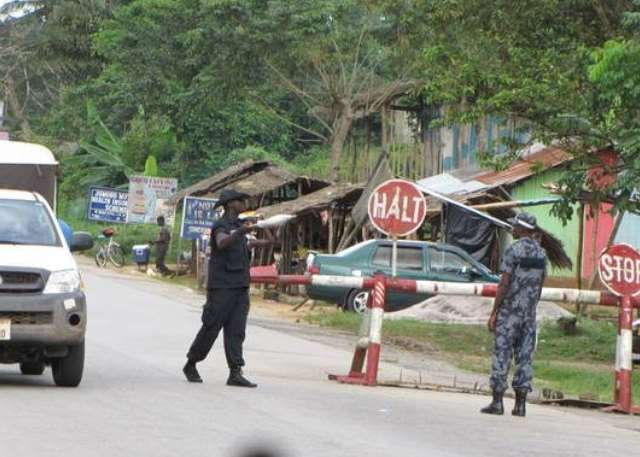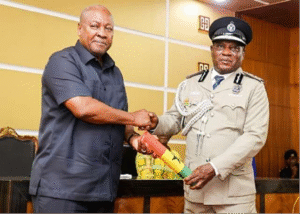
• Cops Told to “Pay Up” or Lose Duty Spots
A shocking cash-for-duty scheme has come to light within Wenchi Police Division, where audio recordings have exposed senior officers allegedly pressuring junior staff to extract from motorists per assignment to be able to meet more than double the previous GHS300 rate. This steep new “duty fee,” imposed by senior figures within the Motor Traffic and Transport Department (MTTD), has reportedly left junior officers scrambling to meet inflated demands by resorting to unwarranted fines and roadside levies on drivers.
In the recording, obtained by The Hawk, Superintendent Oduro Amponsah, Wenchi’s MTTD Commander, is heard berating a young officer for what he deems a woeful underperformance. The recording exposes the commanding officer’s frustration with receiving only GHS900 from three of his men, a mere fraction of the GHS2400 he expected. The stark message is evident: either meet the required quotas or risk being sidelined from future duty rosters.
One officer, referred to as COP, is heard in the audio exchange explaining his belief that the rate remained at GHS300, only to be met with a sharp rebuke from Supt. Amponsah, who accuses him of dishonesty. Excerpts from the recording capture the tense exchange:
• COP: “Amadu left GHS300 with me, and mine is GHS300, too.”
• Supt. Amponsah: “It’s not GHS300. You lie… you lie!”
• COP: “I have always paid GHS300 for office duties.”
• Supt. Amponsah: “Why are you like that? You don’t tell the truth.”
Further discussions reveal an ongoing disconnect between rank-and-file officers and their commanding officer, with Amponsah pressing the junior for GHS800 per assignment—a figure that has left many in the ranks dejected and fearful for their livelihoods.
Junior officers, now under heavy pressure, claim that to make up for these additional charges, they are forced to impose unjustified fines on motorists. The mandate reportedly goes beyond meeting standard operational expenses, with the officers suggesting that failure to meet the quota leads to being excluded from future assignments altogether, cutting off a vital income source.
The tensions among the Wenchi Division’s junior officers have reportedly reached boiling point, with disgruntled personnel meeting secretly to discuss the crushing impact of these fees. One officer anonymously shared his frustration, lamenting the current environment as “daylight robbery with uniforms.” He added, “We’re forced to turn on the very public we’re meant to protect just to stay in the game.”
The high-handed tactics attributed to Supt. Amponsah has reportedly left morale among the force at an all-time low. The junior officers argue that the new demands force them into a predicament where meeting the targets requires crossing ethical lines.
The public response to this unfolding scandal has been one of deep concern. The Wenchi Police Division now faces scrutiny as the allegations cast a shadow on its operations, raising questions about accountability and the ethics within the force.
With the leaked audio now sparking widespread discussion, the central question remains: will Ghana’s police authorities intervene to halt the alleged practice of pay-to-play policing in Wenchi? This controversy could force a significant overhaul in internal policies and bring long-needed reforms to prevent what appears to be a disturbing misuse of authority within the force.
As this investigation continues, The Hawk will monitor developments in what has become an emblematic scandal of power, money, and misplaced priorities within law enforcement.






